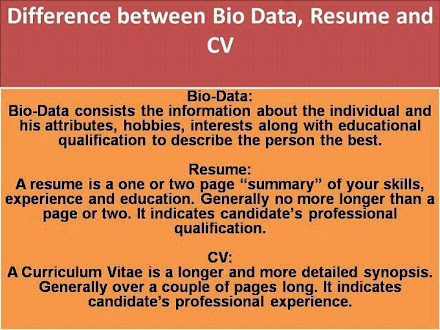"Take responsibility." Although the team leader is held accountable for establishing and monitoring team performance measurements, all team members are responsible for their team's success. If your prior experience was as a member of a work group, your contribution was to get your work done. Your contribution as a team member goes far beyond the work itself. The notes in this reading provide you with advice about how you can interact with the people on your team more productively and offer you tips on how you, as an individual team member, can facilitate constructive team dynamics.
Team Meetings
Your team meeting is your meeting and therefore it is your responsibility to do whatever is called for to make it effective. Team meetings are not something that happen to you; they are something that you make happen. Your team leader, as a participating member, has a piece of the action but he is not solely responsible. And if your team has established a role called "meeting facilitator", that person might take the lead in reserving the meeting room, distributing the advance agenda, or similar tasks, but he is not totally responsible. Every single team member is responsible.
This is a drastic change in role definition for most team members and for team leaders as well. As a team member you can no longer afford to sit back and be an attendee, spectator, or complainer. You must be a full participant/observer, actively contributing to the content of the meeting and at the same time observing team dynamics and intervening when team members are behaving in dysfunctional ways. It's not an easy job but it most definitely is part of your responsibility as a team member.
If you view meetings as an event that someone else plans and leads and that you attend, this will not be an easy adjustment to make. And if your team leader is accustomed to being in charge of the meeting, the adjustment will be even more difficult. The first step in making the transition to this new role of participant/observer requires a major shift in mind-set by all. To behave responsibly, you must feel responsible. And your team leader must also be willing to share the responsibility.
Talk about how your meetings are structured, who decides what the agenda will be, what behaviors are inhibiting the team from accomplishing its intended tasks, and how the team feels at the end of the meeting and why. Then make some decisions collectively about what you can do to improve it.
Don't expect to feel comfortable right away with this added responsibility. It's like becoming a parent for the first time. There's so much to pay attention to. You can't sit back and expect others to make it happen. It's a hard job and it takes an incredible amount of energy.
Every Player Contributes to the Process
Your team meeting has two major focal points that require your attention: content and process.
Content
Content is what your team is working on; process is how your team members are working together. If I asked you to tell me how your last meeting went and you said, "We discussed the consolidation project, put together a plan for year-end closing, and decided to set up a meeting with Quality Team to discuss error rates," you would have reported on the content of your meeting. Content sounds like those items you would summarize in your meeting minutes.
Process
If your response was, "Discussion became very heated and members stopped listening to one another; the energy level was very low, and a lot of time was wasted talking about unrelated topics," you would have described your team's process. In other words, process is a description of how members behaved during the meeting. Another work used interchangeably with process is dynamics.
There may be times during a team meeting when you feel you can't participate because you're not conversant with the topic being discussed. Just because you can't contribute to the content doesn't mean you can't contribute at all. You are in a perfect position to observe and facilitate the team's process -- and that's where teams need the most help. Teams generally do fine with content; they usually have the right items on the agenda and enough contributing experts. Ineffective meetings are usually the result of dysfunctional teams dynamics or process. The entire team is responsible for the success of your meeting so all members should play an active role in facilitating healthy dynamics. When you are not engrossed in the meeting content, you have an advantage of perspective; you can concentrate solely on process.
How do you know whether a team's process is functional or dysfunctional? If the team strikes a balance between satisfying both its task and relationship needs, it has a healthy, functional process going. Members behave in ways that facilitate getting the job done and at the same time make members feel valued, respected, included, and energized. Members leave the meeting saying, "We were very productive and I sure do like being a member of this team." When there is an imbalance between task and relationship need satisfaction, or not enough attention paid to either, the team's process is dysfunctional. If you hear members saying, "We got a lot of things accomplished, but I can't stand the way members treat each other," it's a sure sign that the team hasn't paid enough attention to its relationship needs. And if you hear, "We are so cohesive; just like a family. But we sure didn't get much done," the team has slipped on the task side. And if ever you should hear, "Another waste of two hours--nothing accomplished. Why can't people at least be civil to each other?" you know there is much work to be done on both the task and relationship sides of the equation.
Learning how to observe your team's process and intervene appropriately takes time and practice. If you randomly try to watch everything, you'll see nothing. The key is to train your eyes and ears so that you can focus your observations. A good way to start focusing is to become acquainted with a few specific team facilitation roles, also known as intervention behaviors. Then look for the appropriate situations during your meeting to apply them. In other words, first learn what the helping behaviors are, and why and how they help. Then you will more easily see places where you can be helpful, as explained in Summarizer, Orienter, Harmonizer, and Other Helpful Roles.
Summarizer – Orienteer – Harmonizer - and Other Helpful Roles
"Don't forget to take SOFI HAGE to your meeting. Put her to work I guarantee she will make a significant contribution to your team's progress and success." “SOFI HAGE” The name comes from the first letter of each of the task and relationship roles.
| Task | Relationship |
| Summarizer Orienter Gatekeeper Encourager | Harmonizer Analyzer Fact Seeker Initiator |
It's important that all team members understand and employ each of the four task and relationship roles listed in the exhibit.
The Gatekeeper is concerned primarily with team communication and participation. This member makes sure all team members are actively listening to each other and understanding each other's messages. The Gatekeeper paraphrases messages to make sure that everyone is on the same wavelength and that every idea is understood by the group before being discredited or discarded. The Gatekeeper invites quieter members to participate and makes sure that more active members don't dominate.
The Encourager builds and sustains team energy by showing support for people's efforts, ideas, and achievements. If the Gatekeeper focuses on making sure the content of team members' ideas is clearly understood by all, the Encourager emphasizes members' participation by giving verbal approval: "Good point--that's a great idea." This is another role that prevents Whack-a-mos and in general helps people to feel valued.
When a sports team wins a championship, they follow a time-honored tradition of recognizing their most valuable player. This is the player who, for that game or series of games, gave a stellar performance. It's a nice touch. The team is also generous in lavishing public praise on their MVP during the post-game interview. In my own experience, no praise pleased me so much as when a fellow teammate would say, "We couldn't have done it without you." Apply this practice to your work teams--it's an important investment in team building.
From time to time, you will have a member (perhaps it will be you!) who puts in extra hours or who applies his or her particular talent to a project to make it a winner.
In a team-based environment, it's management's responsibility to reward team performance. It's the team's responsibility to recognize and acknowledge its stars. Be generous with your praise; it's a powerful motivator and it costs nothing to give.







No comments:
Post a Comment